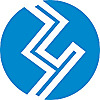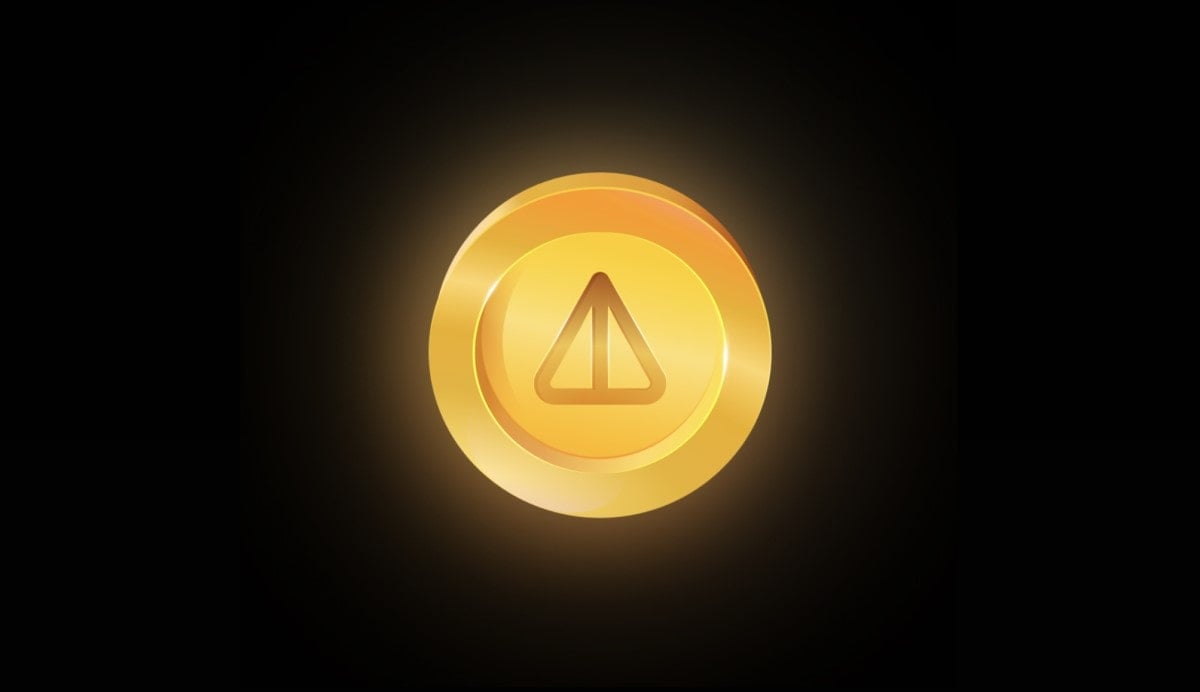ARTICLE AD BOX

Did you know? The tokenization market is projected to reach over USD 300 billion, unlocking a 10+ trillion-dollar market potential. You can be among the top, starting your own platform for tokenized assets with Merkeleon. Merkeleon crypto exchange software development is known among industry leaders for quality, customizability, and innovation. Buckle up to learn the secrets of launching a successful platform for tokenized assets.
Understanding Tokenization
What is Tokenization?
Tokenization has emerged as a disruptor, challenging the traditional notions of asset ownership. It is a transformation of tangible assets into digital tokens on a blockchain. Imagine a Monet painting, a luxurious penthouse, or a stake in a high-profile investment fund becoming easily divisible, transferable, and tradeable with just a few clicks. This digital representation on a blockchain is what we call a token.
But why does this matter?
The shift from physical to digital ownership brings unparalleled accessibility and liquidity. No longer bound by geographical constraints or bureaucratic hurdles, assets become democratized, opening doors for a broader audience to participate in investments that were once reserved for the elite few.
Food for Thought: How might the democratization of asset ownership reshape traditional financial power dynamics? Can tokenization truly bridge the gap between the privileged and the global community?
One of the standout features of tokenization is its dual commitment to security and accessibility. Blockchain technology, the backbone of tokenization, guarantees that each transaction is cryptographically secure and transparent. The immutable nature of blockchain records makes fraud and manipulation a near-impossibility.
Yet, amidst this robust security, accessibility isn’t compromised. Fractional ownership helps individuals to own a piece of high-value assets, breaking down financial barriers and diversifying investment portfolios. It’s a paradigm shift where inclusivity meets security.
Pros and Cons of Tokenization
Tokenization is a revolutionary force, reshaping how we perceive and interact with assets. But like any groundbreaking technology, it comes with its set of advantages and challenges.
Pros
- Liquidity boost. Tokenization transforms traditionally illiquid assets, such as real estate, into a fluid, tradeable form. This newfound liquidity can potentially revolutionize investment strategies, making it easier for investors to enter and exit markets.
- Fractional ownership. Tokenization introduces the concept of fractional ownership, meaning individuals can own a fraction of high-value assets. This democratization of ownership broadens investment opportunities, fostering financial inclusion.
- Global accessibility: Through blockchain’s decentralized nature, tokenization boosts global access to assets. Investors worldwide can engage in markets that were once confined to specific regions, promoting a more interconnected and borderless financial landscape.
- Efficiency and transparency. Smart contracts automate traditionally cumbersome processes, reducing the need for intermediaries. The result is increased efficiency and transparency in transactions, minimizing the risk of fraud and errors.
Cons
- Security concerns. While blockchain is renowned for its security, the platforms supporting tokenized assets may still be susceptible to cyber threats. Striking the delicate balance between accessibility and security remains an ongoing challenge.
- Regulatory uncertainties. The regulatory landscape for tokenized assets is still evolving. Navigating these uncertainties demands a careful approach, as legal frameworks struggle to keep pace with the rapidly advancing technology.
- Market speculation. Tokenization can attract speculative behavior, leading to volatile market conditions. Understanding and managing these fluctuations become crucial for both investors and platform operators.
- Integration hurdles. Integrating tokenization into existing financial systems poses technical challenges. Seamless interoperability requires overcoming hurdles in technology and cooperation among stakeholders.
Real-World Assets for Tokenization
In tokenization, the canvas extends far beyond digital currencies. Real-world assets, from tangible properties to exclusive investments, are being ushered into the blockchain era. Let’s explore assets that can be tokenized, and how this process is reshaping traditional notions of ownership.
Scope of Tokenization: From Penthouse to Picasso
Real Estate Tokenization
Real estate, historically characterized by high entry barriers, is now undergoing a radical transformation. Tokenization permits property owners to break down the value of their assets into tradable tokens, furnishing fractional ownership and democratizing real estate investment.
The iconic Manhattan property, 594-unit luxury condominium, was tokenized, allowing investors to purchase and trade fractions of the property on the blockchain.
Art Tokenization
Exclusive art collections are no longer confined to the walls of elite galleries. Tokenization makes the fractional ownership of artworks possible. Thus, art enthusiasts worldwide can invest in and share ownership of valuable pieces.
“Everydays: The First 5000 Days,” a digital artwork by Beeple, was tokenized and sold as an NFT (Non-Fungible Token) for a record-breaking $69 million, showcasing the power of art tokenization.
Private Equity Tokenization
Traditional private equity investments are often limited to institutional players. Tokenization breaks down these barriers, making private equity accessible to a broader range of investors, creating a more inclusive investment landscape.
SPiCE VC tokenized its venture fund, which enabled investors to trade digital tokens representing ownership stakes in a portfolio of early-stage companies.
Global Trade Tokenization
Tokenizing real-world assets extends beyond physical objects. Businesses can tokenize ownership stakes to promote the trading of these digital representations on a global scale. This has the potential to redefine how we perceive and engage in cross-border trade.
IBM and Maersk’s TradeLens platform leverages blockchain to tokenize shipping containers, improving transparency and efficiency in the global logistics and trade industry.
Market for Tokenized Assets
The tokenization market is not just a niche trend; it’s a powerhouse set to redefine the global economy. Recent projections suggest that the tokenization market is poised to reach over USD 300 billion, representing a fraction of the colossal 10+ trillion-dollar market potential.
The trajectory is clear – tokenization is on the rise. Analysts predict sustained growth, with the market expected to play a pivotal role in the future of finance. The ability to fractionalize ownership and enhance liquidity positions tokenized assets as a cornerstone of modern investment strategies.
Tokenization is tearing down geographical barriers, opening the market to the global audience. This trend is shaping a more interconnected and accessible financial landscape.
Also, the market is witnessing a diversification of tokenized assets beyond real estate and private equity. From art to intellectual property, the spectrum of tokenized assets is expanding, providing investors with a broader array of options.
In the race for market dominance, innovation takes center stage. The integration of blockchain technology and smart contracts is driving efficiency and transparency. Tokenization platforms are continually evolving, presenting novel solutions to age-old financial challenges.
Reflection Point: What if you could launch your tokenization platform? The diverse landscape suggests that there is room for innovation and specialization. The next section will guide you through the steps to turn this idea into reality.
How to Launch Asset Tokenization Platform
Launching your own asset tokenization platform might seem like a daunting task. Fear not – we’re here to guide you through the process step by step.
- Define Your Niche and Objectives. Clearly define the type of assets you aim to tokenize and the objectives of your platform. Whether it’s real estate, art, or private equity, understanding your niche is important.
- Comply with Regulations. Familiarize yourself with the regulatory requirements of the jurisdictions where you plan to operate. Prepare all the documents.
- Select Blockchain Technology. Select a suitable blockchain technology that aligns with your platform’s goals. Consider factors such as scalability, security, and the complexity of integration.
- Develop Smart Contract. Develop smart contracts to automate the issuance, distribution, and trading of tokenized assets. This maintains transparency and efficiency in transactions.
- Add User Authentication and Security. Implement strong user authentication and security measures. It includes identity verification and data encryption to protect user information.
- Develop Tokenization Platform. You have two options – build your platform from scratch or partner with a reputable software development company. The latter offers a faster route to market with ready-made solutions.
Shortcut to Success: If building a tokenization platform from scratch seems complicated, consider an alternative approach. White label crypto exchange software by Merkeleon is a ready-made solution that features a customizable software, along with legal, banking and marketing assistance from renowned partners.
- Design User-Friendly Interface. Design an intuitive and user-friendly interface. Make sure that users can navigate the platform seamlessly.
- Integrate Payment Gateways. Add reliable payment gateways to facilitate smooth transactions. Supporting various payment methods enhances the user experience.
- Test and Assure Quality. Conduct rigorous testing and quality assurance to identify and rectify any bugs or vulnerabilities.
- Launch and Market. Launch your platform and implement a robust marketing strategy. Leverage social media, partnerships, and industry events to create awareness.
Popular Asset Tokenization Platforms
Understanding the existing players in the field provides valuable insights into the diverse features and available products. As we explore these platforms, consider their possibilities:
- Polymath specializes in security token offerings (STOs). The platform provides a broad framework for creating and managing tokenized securities. It boosts the complex process of issuing and managing security tokens, supporting compliance with regulatory standards.
- Securitize is known for its end-to-end platform that aids the issuance and management of digital securities. With a focus on compliance and efficiency, Securitize contributes to the creation of customizable tokenized securities, including real estate and private equity.
- Harbor emphasizes regulatory compliance and investor protection. It offers a flexible infrastructure for tokenizing assets, ensuring that the issued tokens adhere to legal frameworks.
- TokenSoft is recognized for its compliance-focused platform and is instrumental for the issuance of digital securities. It accentuates investor identity verification and regulatory compliance throughout the tokenization process.
- OpenFinance positions itself as a digital securities trading platform, where users can trade a variety of tokenized assets. It stands out for its commitment to compliance and providing a marketplace for tokenized securities.
Future Trends
As we explore the current dynamics and gaze into the future, it becomes evident that the tokenization space is not just a trend; it’s a transformative force reshaping traditional financial paradigms.
Hybrid models emerge where traditional assets are integrated with blockchain technology. This advances a gradual transition to tokenization, appealing to investors comfortable with conventional instruments. An example is RealT, a platform tokenizing real estate, that blends traditional and blockchain-based investments.
We can’t do without NFTs that have transcended their initial association with digital art. Tokenizing intellectual property, music rights, and even virtual real estate are emerging trends. An illustrative example is Decentraland, where virtual real estate is tokenized and traded as NFTs.
Another definitive trend is maturing regulatory frameworks. Laws for tokenized assets become more comprehensive, providing clarity to operators and investors.
With a growing emphasis on sustainability, tokenizing green assets, such as renewable energy projects, is emerging. Power Ledger exemplifies this trend by tokenizing renewable energy, that allows investors to participate in and support sustainable projects.
Possible Alternative: If you want to launch a crypto business, but a platform for tokenized assets seems too much, Merkeleon provides a white label crypto wallet. With this solution, you get a full package: customizable software from blockchain experts, legal assistance from experienced legal advisors, effective promotion from marketing specialists.
Whether you choose to build your platform from scratch or leverage the expertise of established players like Merkeleon, the potential for success is vast. The tokenization space is not just about assets; it’s about empowerment, inclusivity, and the democratization of finance. The world of crypto and tokenized assets awaits – are you ready to redefine ownership and reshape the financial landscape?
.png)
 10 months ago
4
10 months ago
4








 English (US)
English (US)